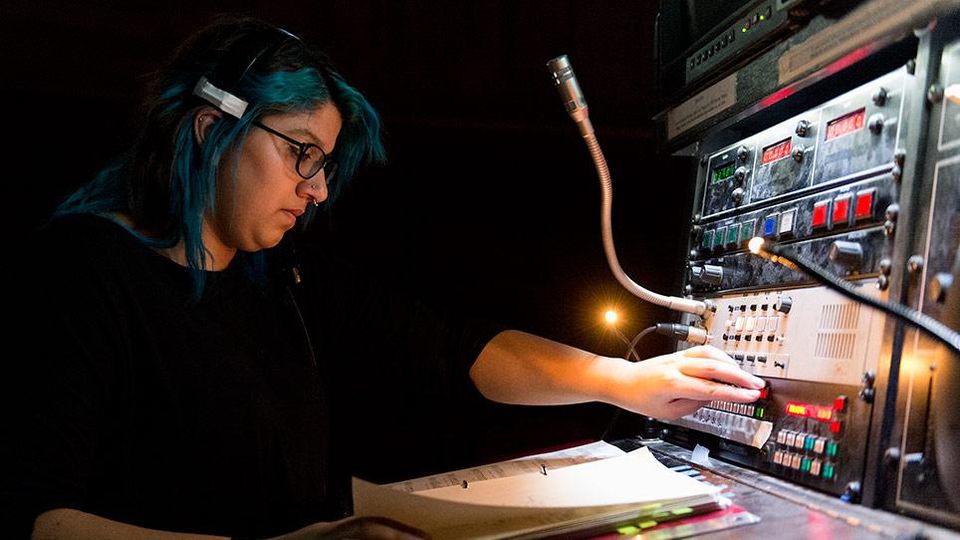
What is a Stage Manager?
When asked ‘what is a Stage Manager’, many people will say that they are the glue that holds a production together, which is an interesting and accurate description.
Stage Managers are the link between what’s going on in a rehearsal room with a director and the cast, when a production is emerging and being rehearsed, and all the other people that are going to make that production happen. A lot of what they’re doing is about communicating creative ideas to the crafts and the technology people who are going to put that into practice and make it happen. They also work very closely with the designers; they have to liaise with them to explain what’s going on, how things are going to be used and to make sure that this can happen.
They also work very closely with the actors, so there’s a huge connection with the cast in terms of their needs and what they’re doing. There’s almost a kind of policing element to it: you’re actually making sure that the right people are in the right place at the right time, making sure cast members know what they’re going to be doing, where and when.
Stage Managers are tremendously tree-unfriendly: we produce a huge amount of paperwork in order to coordinate and record everything that’s going on, so you have to like stationery! Stage Managers are often mad about pencils, notebooks and paper - WH Smiths (a UK stationery and book retailer) is our favourite place.
Difference between Stage Managers in the UK and other countries
One of the things that Stage Managers in Britain do is to go out finding props, which is the difference between stage management in the United States and other parts of the world, but in Britain, Stage Managers will be going out shopping and working with the hire companies to hire the right props.
There’s an element of having to be a bit of a historian and a detective. Finding contemporary objects that may be reproductions or very similar to historical objects and knowing where you can compromise - that’s where you’ll get to work very closely with designers and also with the crafts people who may be making it, or changing a contemporary item into something that looks older.
As a Stage Manager you have to really enjoy working with people. You have to be very nosey, you have to know what’s going on, sorting out people’s problems and more.

Production mode and Problem-solving
During a show - once you get into ‘production mode’, when a show is on - the Stage Manager is in charge of it. You’ll be making sure that what is happening on stage is what has been set to happen by the director and designers, and keeping that consistency going. That will often involve problem-solving and making very snap decisions about how to handle a particular problem. Those problems can be anything from a piece of scenery or lighting failing to an actor missing out a scene or missing out lines, or saying the wrong lines - so you’re coordinating and making decisions about that.
Stage Management is about getting people to the right place. You’re there to make sure the actors are on stage at the right time, and that the lights are happening at the right time and so on. Whilst you have to control that, you must also be sensitive to some of the stresses that happen during the production. As a Stage Manager you have to be really sympathetic and understanding of the pressures that the performers are under. It’s a difficult job, performing, and the performers need looking after, and an understanding of what they’re going through.
Where do Stage Managers work?
There are Stage Managers working in many industries. Some forms of TV have Stage Managers (especially live TV and period dramas) but it’s a very similar job to the job of Floor Manager and of a First Assistant Director in films, so a lot of Stage Managers move into that, as there are many transferable skills.
You’ll also find Stage Managers in the corporate conference world, so big events and large music events will have one. Here it’s a slightly different job, and more to do with the technical side. It can also very much be about artist liaison, getting artists to the right place and making sure they have the bottles of water they’ve asked for. It’s also about coordinating and making sure everything’s on schedule. So there are definitely a lot of parallels - mainly that it’s about organisation and managing people, things and time.
Find out more
If you like the sound of what Stage Managers do, take a look at our Stage Management BA.
